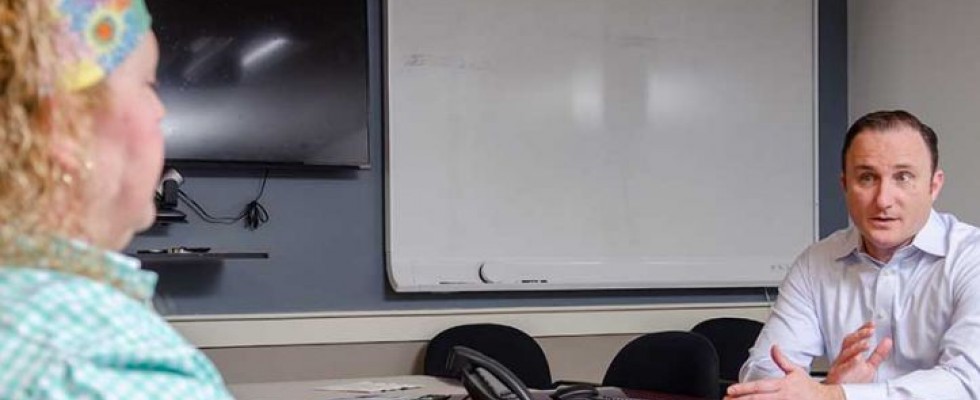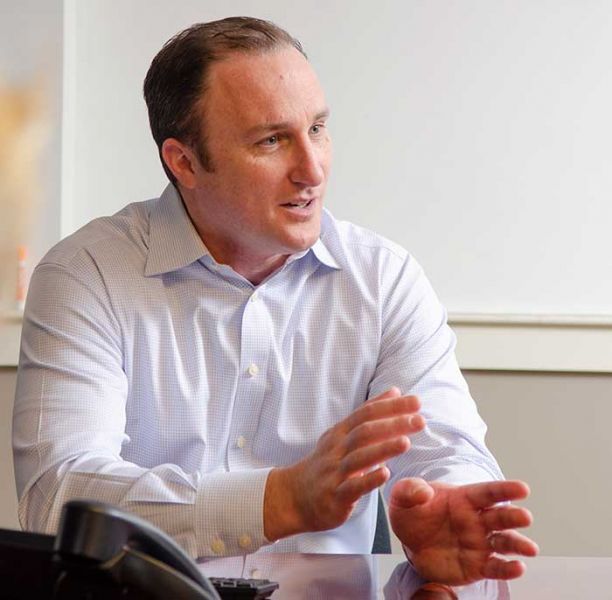
Sleep. It’s vital to heart health, memory, stress reduction and even cancer prevention. For those who suffer from obstructive sleep apnea (OSA), diagnosis and treatment are critical. Gary Sheehan, president, CEO and co-owner of Cape Medical Supply sat down with HomeCare to discuss strategy, sleep, treatment options for OSA, and compliance in the changing reimbursement environment.
HomeCare: Tell us about Cape Medical Supply and the team.
Sheehan: Cape Medical Supply was founded by my parents, Mark and Nancy Sheehan in Cape Cod, Massachusetts, in 1977. Over the years, the company grew and provided home medical equipment (HME), home oxygen and related supplies to communities across southeastern Massachusetts. I joined the organization in 2002. We completed our first acquisition in 2005, acquiring two hospital-owned DMEs from Cape Cod Healthcare. We followed up to that in 2011 by acquiring a sleep-focused business in the state of Maine, which added Maine and New Hampshire to our footprint, and in 2016 we acquired another sleep-focused company in central Massachusetts.
My parents retired in 2006, and my father passed away of cancer in 2010. My brother Mike Sheehan joined the company in 2007 and today serves as our COO, heavily focused on data analytics and service delivery analysis. My other brother Kevin Sheehan joined in 2011 and oversees our resupply program. My brothers and I serve as co-owners.
Today, our strategy is to grow our sleep therapy and orthopedic bracing business, two distinct lines that don’t overlap at all operationally. We are heavily invested in using technology to help enrich the patient and referral experience. We believe in process management and documentation as the keys to unlocking value and achieving scale.
Sleep therapy has grown to 80 percent of our business. We no longer provide home oxygen or basic home medical equipment, as we don’t believe reimbursement is anywhere near sufficient there, so we have exited those businesses entirely.
We have a team of over 75 professionals across New England and are exceptionally proud of their ability to deliver service and care in an environment of eroding reimbursement and punitive regulations.

HomeCare: What’s the strategy behind your focus on sleep products?
Sheehan: Our acquisition in Maine in 2011 started us down the path of focusing on sleep. We are focused on the end-to-end patient experience, from the moment of referral all the way through the reordering process, and we truly believe we have designed and deployed a superior patient journey for sleep therapy through our online store, patient app and utilization of our patient portal. We launched an online platform for our customer base at the end of 2018 and have seen amazing traction there. We also recently launched switchtobettersleep.com as a tool for health care professionals to transition patients from other providers to our platform for reordering of CPAP supplies—early results and volume are very encouraging.
HomeCare: How do you approach prior authorizations?
Sheehan: We remain supportive of 21st-century approaches to prior authorization (PA) that utilize technology to yield quick decisions and allow patients to transition onto care as quickly as possible. It’s always easier to go back with a “no” from a payer and then work together to get what is needed, rather than saying “no” yourself. We are hopeful Medicare will release a technology-enabled PA process soon. Thankfully their clinical criteria are fairly straightforward and understood by most.
HomeCare: How do you get physician buy-in?
Sheehan: Data, data and more data. Cape Medical has long subscribed to a “data, not donuts” approach for our field reps. Don’t be the dinosaur using pens and food to try and win new business; be the leader who can articulate what your sleep therapy program is, how it is differentiated and what the clinical outcomes are. Have a process, have reporting and have analytics to ensure the process is followed and deeper analytics to demonstrate the results. We have a deep level of comfort that we have built out a differentiated program, we can speak to the strengths of that program and our physician partners understand our value as a partner in care.
HomeCare: What is your reporting and referrals process?
Sheehan: We provide detailed reporting to our VIP-level partners on a regular basis, which gives them confidence that their patients are being well cared for. Credit for this goes to our COO, Mike Sheehan, who has a laser-focus on process, data and analytics. We have built out a detailed workflow, superior job aids to ensure workflows are followed and a level of reporting and analytics we don’t believe is matched anywhere. These are our keys to scale, and we believe what will continue to differentiate us from the pack.
HomeCare: As an HME provider, how do you help patients improve their sleep?
Sheehan: First, education. What is OSA, how serious is it, what does treatment look like, what is life like with insurance, what is compliance, when can you replenish? There is a lot for patients to learn and we need to educate throughout the process, particularly at the major transition points in care: pre-setup, at setup, in compliance, reached/failed compliance. We see opportunity to leverage technology and improve here in 2019.
Second, fit. This includes the actual fitting, setup and habituation process. We need to have skilled, personable and compassionate clinicians interfacing with our patients as they initiate care. They are leaving that appointment and going home to sleep with a mask on their face, many for the first time in their life. We need to be sure we get that fit right, answer their questions, allay their fears and set them up for success.
Third, support. How do we provide omnichannel support in ways that support the modern patient? Text, email, apps, portals, live calling—patients want all channels available to them, and we are working in all of those areas to make support seamless and provide patients ease of use and, critically, answers to their questions, whenever, wherever and however they ask them.
HomeCare: What drives patient satisfaction and compliance?
Sheehan: Patient expectation management and education upfront are keys to success. Explain the role of the sleep therapy supplier, the insurance company and the physician so they know where to turn. Explain what is expected of them during the compliance period so there are no surprises. Insurance has made life very difficult for providers and patients alike—the key is explaining to the patient each entity’s role in their care so they can understand what is happening and why at each step.
At Cape Medical, we view our team as coaches who help patients get acclimated to therapy and champion their use of therapy throughout the initial period and help us drive compliance rates significantly higher than industry average, which in turn helps us create market preference and drives patient volume growth.
HomeCare: What advice do you have for struggling patients?
Sheehan: Our clinical teams are adept at conversing with patients struggling with therapy, and the key is gaining buy-in on how critical sleep is and how critical their sleep therapy is to their overall health. Patients who are invested and engaged in their care will have demonstrably better results. I believe our personnel and platform deliver that experience and improve the percentage of success.
My advice is to stick with it, commit to success and work the initial issues. Cape Medical’s support teams are compassionate and patient clinicians—they have to be on the phone with sleep-deprived patients all day. They know how to navigate difficult conversations and spend a lot of time explaining insurance rules.
HomeCare: What pain points do you hear about from clients?
Sheehan: Headaches with insurance. The rules and regulations rolling out of payers the last 10 years are insane, and they are a barrier to a streamlined care approach. Delayed PAs, extensive compliance, opaque deductibles—it all adds up to angry and confused patients looking at providers for answers and assuming we are in the wrong. We have had to create a process to initiate three-way calls with patients and their health insurance because call centers were giving out such bad information. I am hopeful we can see some relief on the situation soon.
HomeCare: What tools are available to help patients achieve better compliance?
Sheehan: Without compliance, their insurance company will take their machine away. I am being flippant, obviously, but the crux of it is the patient has a documented medical condition—OSA—and a device that will effectively treat that condition and improve their overall health and quality of life. Compliance matters; it’s how you unlock all of the clinical health benefits.
Aside from Cape Medical’s in-house resources, apps provided by the manufacturers are valuable and drive a level of engagement and compliance that is markedly higher. We promote these tools and see success with patients who engage with them.
HomeCare: What tools are available to help providers ensure compliance?
Sheehan: The resupply business helps the whole sector make sense, and without compliance, patients never get there. It’s also a proving ground for payers and physicians to measure performance and success as an organization—a report card, if you will, that tells the world how good we are at our jobs, so we need that number to be high if we claim to be a sophisticated provider of sleep therapy services.
There are myriad tools available, and it all starts with reporting and your software systems. I encourage providers to dive into their data, unearth opportunities for improvement and build a better program if they are committed to this market.
HomeCare: What are your top sellers?
Sheehan: Cleaning devices, batteries, travel devices and comfort products—those are the leaders right now. We also sell a good amount of cash products to patients who aren’t yet eligible for insurance coverage, as well as patients who are so dissatisfied with their insurance requirements that they are just paying out of pocket to get what they need.
HomeCare: What direction do you see the sleep therapy product market heading?
Sheehan: Continued specialization and consolidation. It’s a complicated space, and if you are just dabbling in it, you are going to get burned. I also see continued regulatory headaches spreading across the country. I think—based on conversations I have—that the Northeast is the canary in the coal mine for some of the utilization management companies, and as they spread across the country, providers will feel the pain, and cost, they bring to their businesses.
Cape Medical is committed to the market, feel we have a very strong end-to-end platform and are actively seeking other providers to partner with to assist with building a larger platform that can deliver patient value and compete in the coming years. It’s a lot of work, but we are invested in it and excited about the organizational direction we are headed.
HomeCare: What steps would you recommend other providers take to succeed in the sleep therapy market?
Sheehan: Understand the journey from the patient’s point of view. Think through when they first considered being tested, the testing process, when the diagnosis was received, and how they learned about a CPAP. And then someone told them about compliance, monitoring, and they realized, “You’re going to watch me while I sleep!” Then, wrap a business model around that, apply some financial analysis and see if it can work. But don’t dabble in it; this isn’t a market sector for tourists. Sleep patients have acute needs and require expert providers on their side to manage their care. If you’re going to be in sleep, be great in sleep.
